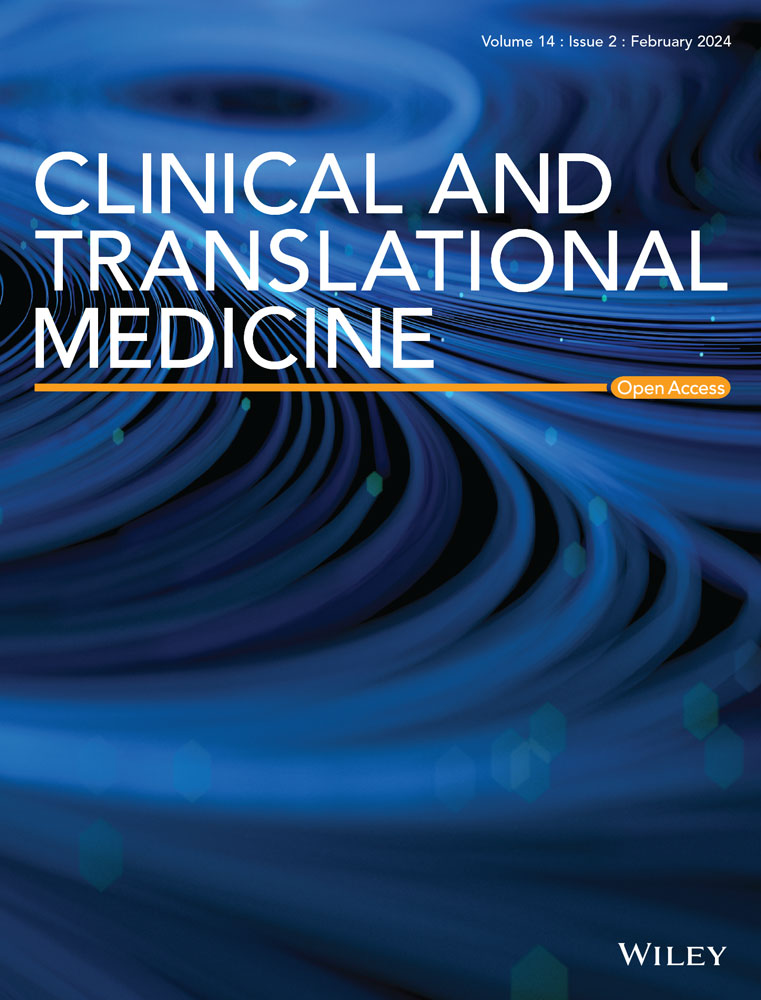Predictive circulating biomarkers of the response to anti-PD-1 immunotherapy in advanced HER2 negative breast cancer
Abstract
Background
Immunotherapy shows promise for treating advanced breast cancer, but only a few patients could respond. Predictive biomarkers from peripheral blood are urgently needed.
Methods
We designed a comprehensive 42-marker mass cytometry panel to profile the peripheral blood samples from 57 patients diagnosed with advanced HER2-negative breast cancer receiving anti-PD-1 combination therapy. Patients were categorized as responders and non-responders according to 6-month progression-free survival (PFS), followed by phenotypic and functional comparations to identify candidate predictive biomarkers. Longitudinal analysis of paired samples further revealed dynamic changes in these specific subpopulations.
Results
Non-responders exhibited significantly higher frequencies of CD39+ Tregs (adjusted p = .031) in the T-cell milieu at baseline, which exhibited a positive correlation with PD-1+ T cells in the NR group. Longitudinal assessment indicated a significant decrease of PD-1+ T cells and an increase of CD39+ Tregs following anti-PD-1 treatment, suggesting their potential role in immunotherapy resistance. In the myeloid compartment, responders showed significantly higher CCR2+ monocyte-derived dendritic cell frequencies than non-responders (adjusted p = .037). These cells were positively correlated with other dendritic cells in responders but negatively with naïve T cells in non-responders. Based on these two efficacy-related biomarkers, we developed an immunotherapy prognostic prediction model and confirmed its superiority in distinguishing patient PFS (p < .001).
Conclusion
Peripheral CD39+ Tregs and monocyte-derived dendritic cells are correlated with immunotherapy response, serving as potential biomarkers to guide therapeutic choices in immunotherapy.
Key points
- CD39+ Tregs in peripheral blood are associated with poor response to anti-PD-1 immunotherapy in advanced breast cancer.
- Higher frequencies of CCR2+ monocyte-derived dendritic cells correlate with better immunotherapy outcomes.
- A predictive model based on CD39+ Tregs and monocyte-derived dendritic cells effectively distinguishes patient progression-free survival.
- Peripheral blood biomarkers offer a non-invasive approach to guide immunotherapy choices.


 求助内容:
求助内容: 应助结果提醒方式:
应助结果提醒方式:


